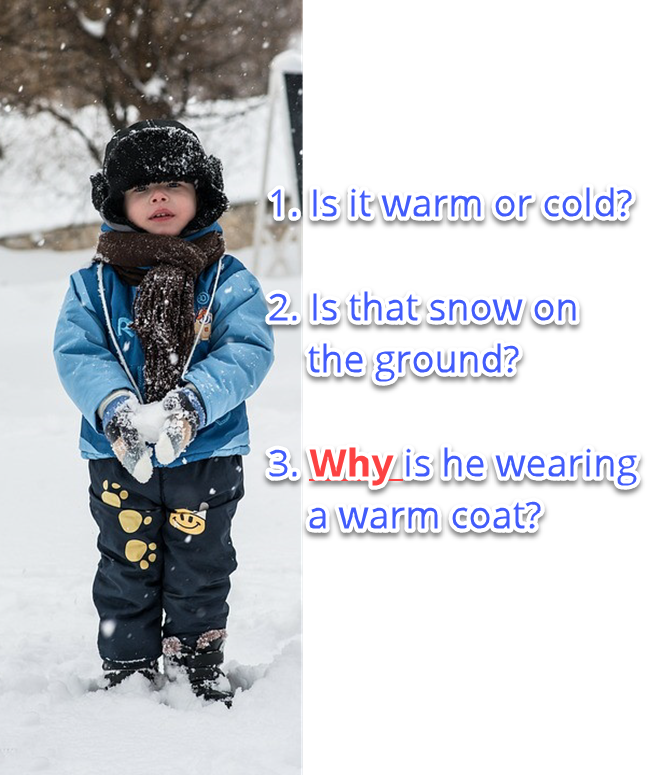Clever cueing strategy for WHY-questions
 How to help survivors understand WHY questions
How to help survivors understand WHY questions
WH questions (Who, What, Where, etc.) are particularly difficult part of speech therapy, as I've written about before. WHY is a particularly difficult WH question because it's more abstract, cause and effect. The answer is often not a Thing or an Action. You can see how hard this is by trying to fine a picture for Why answers.
Try this at home
- Find a picture that leaves a clear impression on you. (In the
examples below, it's someone cold, someone dirty.
(See my article on how to find pictures for speech therapy (even actions!) - Talk about the picture.
- Introduce the answer in the discussion.
- Confirm the patient understands the picture and the discussion.
- Ask your Why question about the picture.
Try the Examples below:

- Is it warm or cold?
- Is that snow on the ground?
- Why is he wearing a warm coat?

- Is he dirty?
- What is all over him?
- Does he need a bath?
- Do you think is parents want him to take a bath?
- Why does he need to take a bath?

- What is this furry thing?
- What is he chasing?
- Why is the dog running?

work on your goals?
Every day is an opportunity for recovery. Don't miss a single day.
- Surprising neuroscience discovery that makes recovery possible at any age.
- Why embracing failure leads to faster recovery.
- Unlock your survivor's communication needs in 4 steps.
- How to improve speech & language at the kitchen table.
Clay Nichols
Co-founder of
MoreSpeech and
Bungalow Software
for unlimited speech therapy at home and in the clinic.
 For
3 decades, Clay has helped patients, caregivers and speech pathologists
with speech & language software. He is not a speech-language
pathologist.
For
3 decades, Clay has helped patients, caregivers and speech pathologists
with speech & language software. He is not a speech-language
pathologist.
© 2025 Bungalow Software